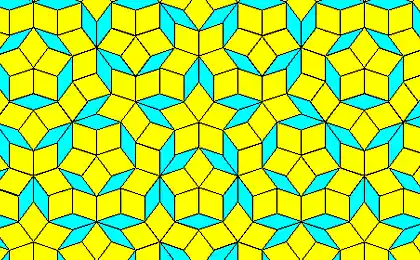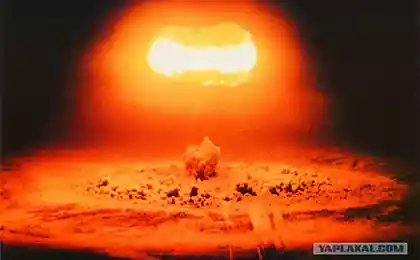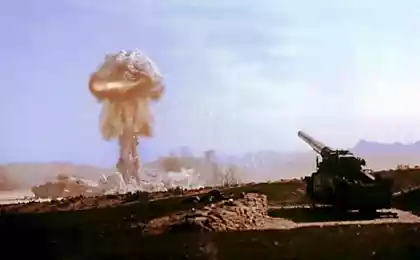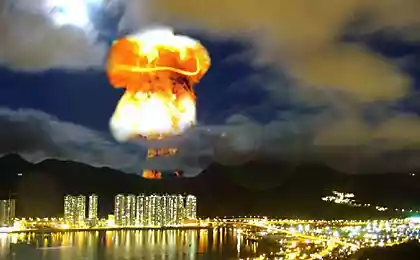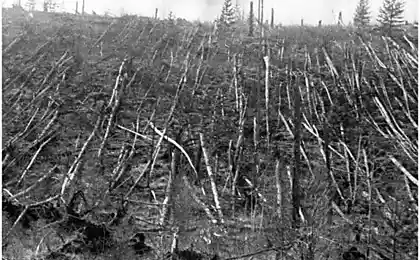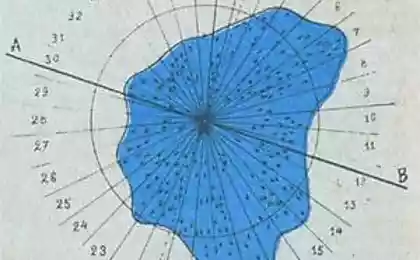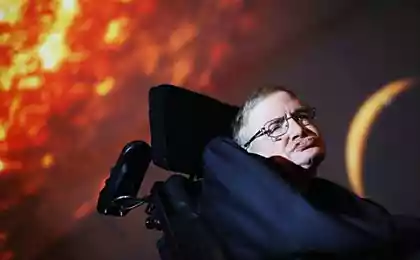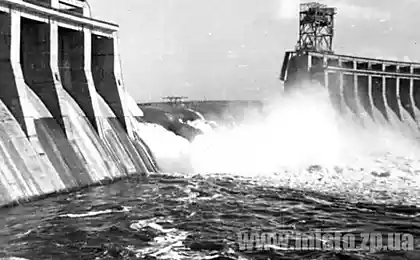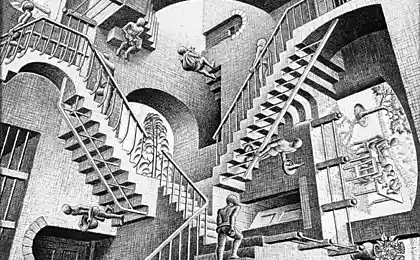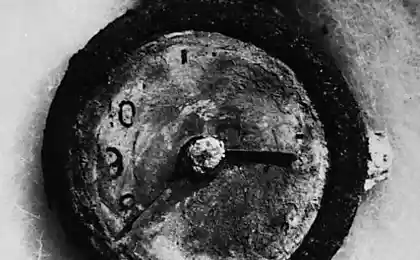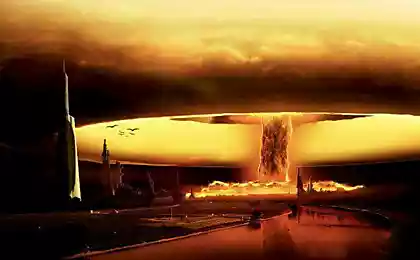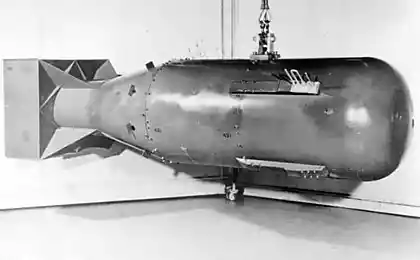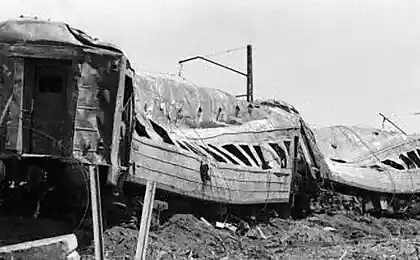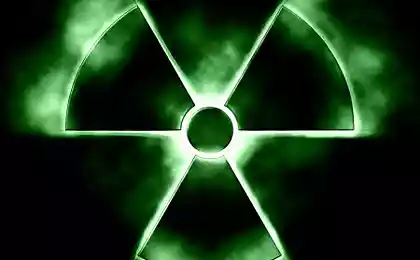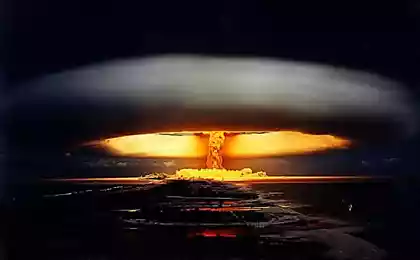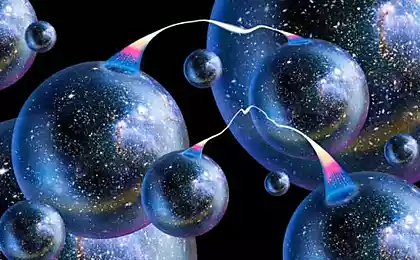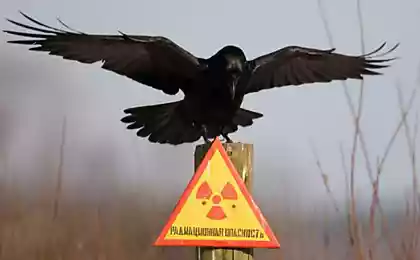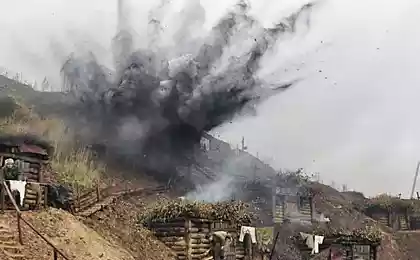593
What caused the Big Bang?
In the beginning there was a question mark. And then everything else. The end. We've all heard about the Big Bang theory (I'm talking about the cosmological model, not the Pro series), but it is important to understand what this theory is and what not. Let me clarify one accurate, clear and ridiculously simple thing: the Big Bang theory is not a theory of creation of Universe. Fix this for the record. Correct people when they're wrong.
The fact that there is much confusion on all sides, and it would be better to keep it simple. The Big Bang theory is a scientific model, like any other scientific model. We believe that it is correct because the — attention — it supports the widest range of evidence.
Since the advent of this idea, the Big Bang theory have endured decades of struggle among scientists scratching, fighting, beat in the back, criticized, undermined, argued, argued and even called me names, trying to crush his rivals and prove that their alternative is better. Why? Because the one who offers the best scientific paradigm, will receive a free ticket to Stockholm.
And, in the end, nobody cancelled the evidence. You know this universe that we are trying to understand. Any new observation is thunder in broad daylight in the scientific world; the two theories can enter, but there will be only one. And what's left after decades of observations? Hint: big.
The evidence began with the moment when Edwin Hubble observed that every galaxy, on average, flying away from every other galaxy. The universe is expanding. This fact in itself is already quite strong. For millennia, the main assumption (and to blame a certain something) was that while here on Earth, things change up in the air all relatively unchanged. Stars explode, galaxies collide, but in General the universe two weeks ago similar to the Universe today. Check a month later — same thing. So the people thought.
And I was wrong. The universe today is not like the Universe yesterday, and tomorrow it will be different. And not only in local scale.
And if you noticed that every day the universe gets bigger, you can make a logical effort to think of that a long time ago the universe was... less? Yes? I'm guessing? And if the scientist in you has not died, as soon as you get to that absurd and ridiculous concept, you will think about the consequences and about how to verify this doubtful, at first glance, the theory.
The history of the last 14 billion years is a history of density. The universe consists of a bunch of stuff: hydrogen, helium, raccoons, dark matter, hryaschikov, photons, bloody wheels, neutrinos and so on. All this manifests itself in different ways at different densities, so when the universe was less than one type of things could prevail over the other, and the physical behavior of these belongings could control the course of events.
For example, in our days, the universe is mostly dark energy (whatever it was), and its behavior is controlled by the Universe — in our case it is a period of accelerated expansion. But a few billion years ago the universe was smaller, and the whole matter was more densely Packed. Because of this density, the ruler of the roost was the matter, the overwhelming dark energy, which was more of a background curtain than the engine of modernity.
(Sidenote: seize the initiative dark energy occurred almost at the same time, when our Solar system was gathering itself in parts, and at the same time the universe was about two times less).
The birth of the era of dark matter may not sound particularly dramatic, but the farther in time — and the smaller the universe, the weirder things become. Return to more than 13 billion years, when the universe was a thousand times smaller than its current size, and substance that one day will be whole galaxies will be so tightly clenched together that even the atoms can not be formed. It is so dense that every time a nucleus attracts the electron, it cuts into the windy high-energy photon knocking an electron off. This plasma, once the entire universe was in this state.
Fast forward to today, and the remaining light of the era when the universe had cooled and expanded enough to give to form the first atoms, continues to Shine through us even now. But the universe is older and colder, and these high-energy gamma-rays are weak microwaves, creating a background that pervades the cosmos — the cosmic microwave background, the relic radiation of the CMB.
CMB is not only one of the main signs of the Big Bang (sort of the young Universe), but also a window into earlier times. Even if we can't perceive the Universe to the formation of the cosmic microwave background radiation, but the physics of that time left an imprint on the very background radiation. This is important.
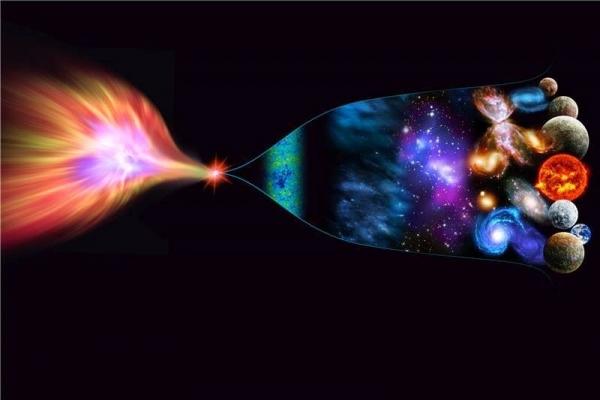
The farther we go back in time, the less we know the universe — it's even weirder plasma. Go back in time and find that they are unable to form stable nuclei. Further, the protons and neutrons are unable to withstand the pressure and degenerate into its components: quarks and gluons. And then it's difficult.
The Big Bang theory can be summarized as follows: one day the whole universe — everything you know and love, on Earth and in heaven — was compressed into a ball with a temperature of a trillion degrees the size of an Apple. Or peach. Or small grapefruit. It doesn't matter.
This statement sounds ridiculous, and if you are still said about this a couple of hundred years ago... You would have burned at the stake, not the Church, but the scientists themselves. But no matter how crazy the theory might be, we can study this era, relying on their knowledge of high energy physics. We can simulate the physics of the universe this early epoch, and to trace its consequences in later times. Can make predictions and do science.
In the "peach era" the age of the Universe was a fraction of a second. Even smaller percentage — 10^-36 seconds or so. Since then, we have a rough picture of how the universe functions. Some questions, of course, remain open, but in General we have at least a vague understanding of.
The older the universe becomes, the clearer becomes the picture, but it is terrible to realize that our poor monkey brains suffered so young age of the Universe.
With regard to earlier times, our understanding of the Universe becomes... blurred. Force, energy, density, temperature are too high, and the understanding of physics that we have accumulated over the centuries, unable to cope with the task. In the very early Universe gravity is particularly important on a small scale, and this is quantum gravity chamber, system which still eludes modern physics. We just don't have any idea about what is going on with strong gravity at small scales.
Just. No.
Up to 10^-36 seconds, we just do not understand the nature of the Universe. The Big Bang theory fantastically accurately describes everything that happened after that, but before — is unclear. On a small enough scale we don't even know if you had any sense of the word. On incredibly tiny scales (even fewer of those that you can imagine in theory), the quantum nature of reality rears its ugly head in full force, turning our friendly and space-time in the jungle, full of traps and sharp spikes. Concepts of space and time simply do not work on such a scale. Nobody knows what's going on.
Of course, there are some ideas of models that describe what could "ignite" or "to sow" the Big Bang, but at this stage it's purely speculative. If these ideas get support in the form of observations — for example, imprint on the relic background — then Yes, we will be able to work them through.
If not, then they will remain a fairy tale for the night. As, however, and all we can say on the subject what was before the Big Bang. published
P. S. And remember, only by changing their consumption — together we change the world! © Join us at Facebook , Vkontakte, Odnoklassniki
Source: hi-news.ru
